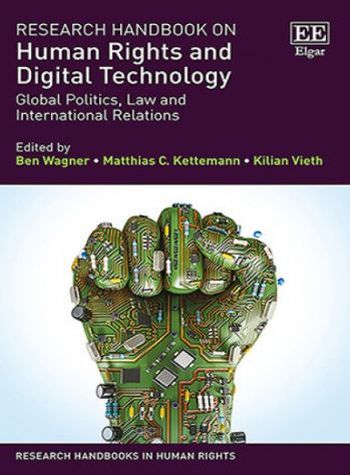
In a digitally connected world, the question of how to respect, protect and implement human rights has become unavoidable. This contemporary Handbook offers new insights into well-established debates by framing them in terms of human rights. It examines the issues posed by the management of key Internet resources, the governance of its architecture, the role of different stakeholders, the legitimacy of rule making and rule-enforcement, and the exercise of international public authority over users. Highly interdisciplinary, its contributions draw on law, political science, international relations and even computer science and science and technology studies.